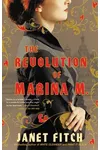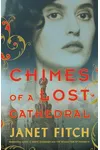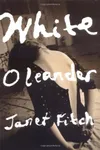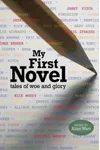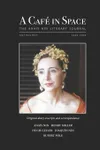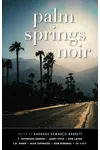Picture a Los Angeles storyteller who spun a tale so vivid it became an Oprah Book Club sensation—meet Janet Fitch! Born in 1955, this American author captured hearts with her debut novel, White Oleander, a poetic exploration of mother-daughter bonds and resilience. With her lush prose and knack for diving deep into the human psyche, Fitch has carved a unique space in contemporary literature.
Fitch’s stories aren’t just books—they’re emotional journeys. From the gritty foster homes of Los Angeles to the turbulent Russian Revolution, her work blends historical depth with raw, personal struggles. Let’s dive into the life and legacy of this literary gem!
The Making of Janet Fitch
A third-generation Los Angeles native, Janet Fitch grew up in a family of book lovers, devouring stories from an early age. Initially set on becoming a historian, she studied at Reed College, drawn to the grand narratives of Russian history. But on her 21st birthday, while studying abroad at Keele University in England, a midnight epiphany struck: she was destined to write fiction. This revelation set her on a path of storytelling, fueled by her love for authors like Fyodor Dostoevsky and Edgar Allan Poe.
Fitch’s early career was a hustle—typesetting, journalism, and even editing a small Colorado newspaper. After years of rejections, her short story ‘White Oleander’ caught the eye of Joyce Carol Oates, who suggested it could be a novel. That spark led to her breakthrough, proving persistence pays off.
Janet Fitch’s Unforgettable Stories
Fitch’s debut, White Oleander (1999), is a haunting coming-of-age tale. It follows Astrid, a teen navigating Los Angeles foster homes after her poet mother, Ingrid, is jailed for murder. The novel’s poetic prose and raw emotion earned it a spot in Oprah’s Book Club, selling nearly a million copies and inspiring a 2002 film. Readers praised its vivid imagery, with lines comparing sorrow to a copper penny.
Her follow-up, Paint It Black (2006), dives into 1980s punk-rock Los Angeles, exploring grief and identity after a suicide. Fitch’s epic The Revolution of Marina M. (2017) and its sequel, Chimes of a Lost Cathedral (2019), shift gears to revolutionary Russia, tracing a young poet’s journey through love and upheaval. Her style—lyrical, intense, and deeply psychological—weaves history and emotion into unforgettable narratives.
Fitch’s themes often center on self-discovery, complex relationships, and resilience. Her prose, inspired by poets like Dylan Thomas and Ezra Pound, feels like a song, with every word chosen for impact. Whether it’s Astrid’s foster home odyssey or Marina’s revolutionary awakening, Fitch’s characters grapple with who they are and who they can become.
Why Janet Fitch Matters
Janet Fitch’s impact lies in her ability to make the personal universal. White Oleander resonated with readers for its raw portrayal of mother-daughter dynamics and survival, inspiring countless book club discussions. Her later works, like The Revolution of Marina M., showcase her versatility, blending historical sweep with intimate character studies. Fitch’s teaching—14 years at USC and workshops at Squaw Valley—has also shaped aspiring writers, emphasizing the power of voice and persistence.
Her legacy endures through her evocative storytelling and fearless exploration of women’s inner lives. Fitch doesn’t just write—she invites readers to feel, reflect, and grow alongside her characters. In a world craving connection, her work reminds us of the beauty in our shared struggles.
About Janet Fitch
- Born: November 9, 1955, Los Angeles, California
- Key Works: White Oleander, Paint It Black, The Revolution of Marina M., Chimes of a Lost Cathedral
- Notable: Oprah’s Book Club selection for White Oleander (1999)
- Influences: Fyodor Dostoevsky, Edgar Allan Poe, Dylan Thomas
Ready to lose yourself in a world of poetic prose and powerful stories? Grab White Oleander or The Revolution of Marina M. and dive into Janet Fitch’s unforgettable universe!
